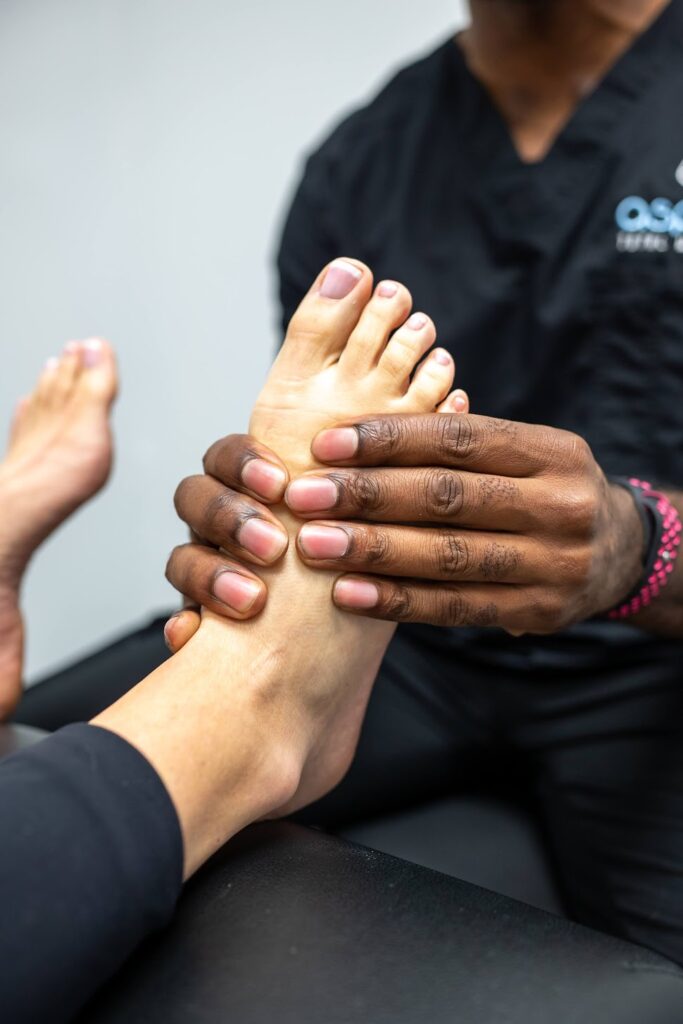The human body is a masterpiece of motion. From the intricate dance of muscles and joints to the coordination of complex athletic movements. Understanding the science behind this remarkable phenomenon is the realm of Kinesiology.
What is Kinesiology?
Kinesiology, derived from the Greek words “kinesis” meaning movement and “logia” meaning study, is the scientific study of human movement. It encompasses a wide range of disciplines, including biomechanics, exercise physiology, motor control, motor development, and sports psychology. Kinesiology influences multiple aspects of our lives.

Sports Performance
By understanding the biomechanics of different movements, kinesiologists can optimize athletic performance, prevent injuries, and develop tailored training programs to enhance strength, endurance, and agility.
Rehabilitation and Injury Prevention
By assessing movement patterns, identifying muscle imbalances, and prescribing corrective exercises, kinesiologists help individuals recover from injuries, improve mobility, and prevent future problems.
Health and Fitness
Through exercise prescription, lifestyle modification, and ergonomic assessment, kinesiologists assist individuals in managing chronic conditions, maintaining a healthy weight, and improving their overall quality of life.
Occupational Health and Safety
By analyzing workstations, recommending proper body mechanics, and implementing injury prevention strategies, kinesiologists create safer work environments and optimize worker productivity.
Motor Development and Education
Kinesiology also examines the development of movement skills in children. By understanding motor milestones and implementing evidence-based physical education programs, kinesiologists contribute to the healthy growth and development of children, fostering lifelong physical activity habits.

The Tools and Techniques of Kinesiology
Biomechanical Analysis
Using motion capture technology, force plates, and computer simulations, kinesiologists analyze and quantify movement patterns, joint angles, forces, and torques to gain insights into the mechanics of human motion.
Exercise Physiology
Kinesiologists employ exercise testing and assessment protocols to evaluate physiological responses to exercise, such as cardiovascular fitness, muscle strength, and metabolic efficiency. This information helps in designing appropriate exercise interventions.
Motor Control and Motor Learning
By studying the control and coordination of movements, kinesiologists examine how the nervous system processes information to produce and refine motor skills. This knowledge is vital for designing effective training programs and rehabilitation protocols.
Psychosocial Factors
Kinesiologists recognize the importance of psychological and social factors in movement behavior. They explore motivation, goal setting, and psychological strategies to optimize performance, adherence, and overall well-being.
Future Directions and Innovations
Technology Integration
The integration of wearable sensors, virtual reality, and artificial intelligence allows for more accurate movement analysis, personalized training, and remote coaching, leading to enhanced performance and injury prevention.
Aging and Movement
Kinesiology is actively exploring ways to promote healthy aging through exercise interventions, fall prevention strategies, and maintaining mobility and independence in older adults.
Movement in Special Populations
Kinesiologists are studying movement disorders, such as Parkinson’s disease and cerebral palsy, to develop innovative therapeutic approaches that optimize function and quality of life.
By understanding the intricacies of human motion and its connection to physical and mental well-being, kinesiologists play a vital role in improving performance, preventing injuries, and enhancing the quality of life for people of all ages and abilities.
Contact us and schedule your Mobility Assessment today. Get more details about Kinesiology and the Therapies available for you at Aspire Total Wellness here.